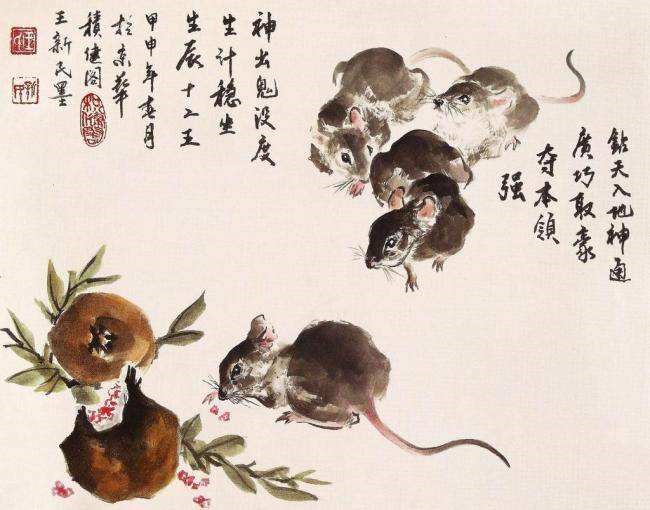The Chinese Zodiac Culture 1-Rats symbol
The Chinese Zodiac not only integrates ordinary creatures into Chinese life, but its natural habits are endowed with many cultural meanings, from animals to gods, and receive respect and worship. Only the combination of natural creatures and cultural gods can form a complete impression of zodiac animals. Let’s go to learn more about 生肖鼠(sheng xiao shu), Rats.
生肖鼠(sheng xiao shu), Rats steal food, which proves that "hamsters have surplus food", indicating that the family is rich, and more rats in the family symbolize wealth.

Fang Ruiyi in the Qing dynasty recorded a kind of "money mouse" toy in eastern Guangdong, which sounds like counting money. Mice can make a sound like counting money. In the old times, Hubei and other places took this sound as an auspicious omen. Zhejiang area believes that "the Lord gets wealth in the first half of the night, and the Lord scatters wealth in the second half of the night", while Chongming area believes that this sound indicates disaster.
Rats have strong reproductive ability and are often used as a symbol of reproductive worship among the people. The mother of the child population is jokingly called "mouse fetus" or "mouse belly". In the atlas of the Chinese Zodiac by Ren Yu, a painter at the end of the Qing Dynasty, the five rats are eating melon seeds in the pot, and the sound of "seed" and "son" is the same, which expresses the meaning of many children. Mice and multi seeded plants such as gourds, grapes and pomegranates form auspicious patterns, which strengthens the desire to reproduce.
Treasure spitting rats are the vows of the God of wealth in Tibetan Buddhism. Treasure spitting rats are held in the arms of the Yellow God of wealth, the king of treasure and the king of Pishan. The spitting treasure rat originally lived in the sea. All mani treasures in the three realms of heaven, man and dragon were spitted out by the spitting treasure rat.